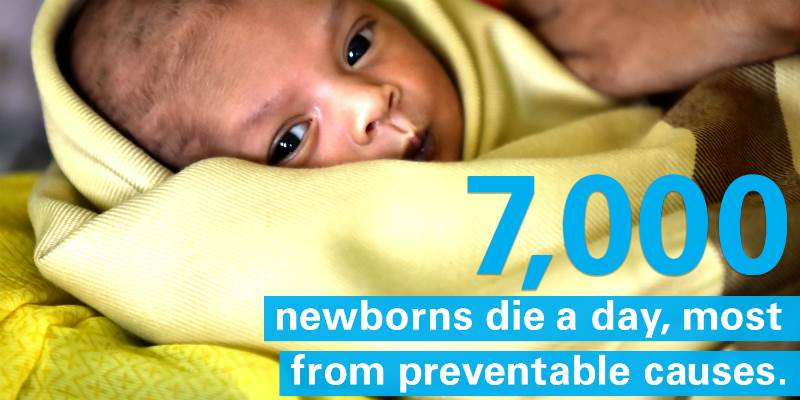- As a global community, we have made substantial progress over the past 20 years in improving the health and well-being of women and children. However, equitable access to affordable healthcare is not a reality for all. More than six million deaths can be prevented each year through low-cost interventions. Among the six million - and the reason we are here today – are the 2.6 million newborn infants who die before the end of their first month.
- The international community, including Norway, are dedicated and committed to reach the Sustainable Development Goals (SDGs), including leaving no one behind. To double the decline in newborn- and maternal mortality rates in the 50 countries with the highest mortality, we will need to reach the most vulnerable, those in the most difficult situations.
- It is possible to achieve the target even in very difficult contexts. Recent results from three very difficult states in Northern Nigeria is an illustration of this. An Integrated Maternal and Neonatal Health Approach by the Nigerian Government, the Clinton Health Access Initiative and Norway, show a decline of 37 per cent in maternal mortality and 43 per cent in newborn mortality.
- Norway supports the Every Woman Every Child initiative, spearheaded by UN Secretary-General Guterres, and the Global Strategy for Women’s, Children’s and Adolescents’ Health. UNICEF plays a key role in the main areas; Survive, Thrive and Transform. Nutrition and care for pregnant and newborn is essential. UNICEF, along with the other H6 agencies, play a vital role providing technical expertise critical to deliver on the Strategy.
- Together with UNSG, Canada, USAID and the World Bank, Norway initiated the Global Financing Facility for Every Woman Every Child. UNICEF is a key partner in GFF. The aim is to address challenges jointly, through a country led process, financing health services with a long-term perspective of sustainability. GFF is a flexible joint platform which opens for cross sectorial investments, including for newborn.
- Innovations are crucial for progress. Norway has promoted and supported scale up of innovations through the Saving Lives at Birth partnership. One example is a respiratory assistive device (bubble CPAP) which is in use in Malawi. A pilot study showed 67 per cent reduction in newborn mortality. The device is now in use in as many as 28 district hospitals.
- UNICEF is an important actor and partner in saving lives of newborns. Norway welcomes UNICEF’s “Every Child Alive” campaign to spark action and deliver affordable, quality health care solutions for every mother and newborn.

Unicef: Every Child Alive Campaign
Statement by ambassador Tore Hattrem on Unicef's Every Child Alive campaign launch, 20 February 2018.
| UN